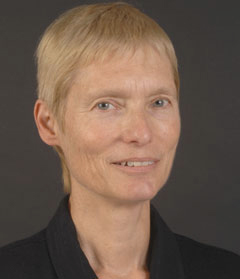|
|
||
|
Possible Futures at Work: Anticipation of Power and Pay by U.S. College Students |
||
 |
Hilary M. Lips, Ph.D. Department of Psychology Radford University Radford, Virginia 24142 U.S.A Telephone: 1-540-831-5387 E-mail: hlips@radford.edu Fax: 1-540-831-6113 |
 |
|
A Submission To Gender, Work and Organization 8th Biennial Interdisciplinary Conference Stream on Youth Job Insecurity: Gender, working life and life plans June 2014, Keele University, UK |
||
|
Possible Futures at Work: Anticipation of Power and Pay by U.S. College Students Women form almost half the paid workforce in the United States (U.S. Bureau of Labor Statistics, 2012), and a consistent message to young women is that they can expect to work for pay for a significant portion of their lives. For college students, this expectation may well imply a professional career. Indeed, most women in this group expect to have careers—although they are more likely than men to expect to adjust their careers to care for children (Fetterolf & Eagly, 2011). Yet, in their plans for the future, young women may not have acknowledged two problematic issues linked consistently with gender and work: power and pay. Young women may overtly be in denial that these issues are still linked to gender; however, they may be implicitly adjusting their expectations to accommodate the possibility of encountering gender-related difficulties and discrimination with respect to access to both power and pay. This implicit accommodation can be regarded as a form of self-silencing (Jack & Dill, 1992; London et al., 2012), and it has implications both for women’s wellbeing and for women’s collective efficacy in creating a more gender-equitable world. The research to be described here examines young women’s expectations in terms of the extent and manner in which they will be able to be powerful and effective and how well they expect to be paid in their future careers. Research in the past decade provides evidence that female and male university students in the United States and elsewhere differ somewhat in their anticipation of powerful professional roles. Lips (2000, 2001) found, in different samples, that women anticipated more relationship problems associated with powerful roles than men did, and that women viewed their holding certain future powerful roles as less possible and less positive than men did. Killeen, Lopez-Zafra, & Eagly (2006) found that, among respondents from the U.S. and Spain, men envisioned future powerful roles as more possible for themselves than women did, but that each gender responded more positively to managerial roles in “gender-congruent” industries. p; Research has also shown that women have lower salary expectations and expect slower promotions than men do (Schweitzer, Ng, Lyons, & Kuron, 2011). A recent poll of college undergraduates in the United States, for example, showed that women expected to earn an average of $7700 less per year in starting salaries than men did (Casserly, 2013). In this paper, I report the results of two studies that examined the career-related expectations of college students at one U.S. institution. The first suggests that men still view certain powerful roles (especially political and business roles) as more possible and more desirable for them than women do. The second indicates that although women in this group appear to have stronger commitment to their future work than their male counterparts, they continue to expect lower salaries at the peak of their career, more time away from the workplace to accommodate childcare responsibilities, and fewer career rewards than men do. I reflect on these findings as indicators of how gender norms constrain young women’s views of their career prospects against a backdrop of economic insecurity.
References Casserly, M. (2013, September 10). How women’s low expectations perpetuate the gender pay gap. Forbes. Retrieved from http://www.forbes.com/sites/meghancasserly/2013/09/10/how-womens-low-expectations-perpetuate-the-gender-pay-gap/
Fetterolf, J. C., & Eagly, a. H. (2011). Do young women expect gender equality in their future lives? An answer from a possible selves experiment. Sex Roles, 65, 83-93. Jack , D. C., & Dill , D. (1992). The Silencing the Self Scale: Schemas of intimacy associated with depression in women. Psychology of Women Quarterly, 16, 97-106. doi: 10.1111/j.1471-6402.1992.tb00242.x
Killeen, Lauren A., Lopez-Zafra, Esther, & Eagly, Alice H. (2006). Envisioning Oneself as a Leader: Comparisons of Women and Men in Spain and the United States. Psychology of Women Quarterly, 30, 312-322.
Lips, H. M. (2000). College student's visions of power and possibility as moderated by gender. Psychology of Women Quarterly, 24, 39-43.
Lips, H. M. (2001). Envisioning positions of leadership: The expectations of university students in Virginia and Puerto Rico. Journal of Social Issues, 57, 799–813
London, B., Downey, G., Romero-Canyas, R., Rattan, A., & Tyson, D. (2012). Gender-based rejection sensitivity and academic self-silencing in women. Journal of Personality and Social Psychology, 102, 961-979. doi: 10.1037/a0026615
Schweitzer, L., Ng, E., Lyons, S., & Kuron, L. (2011). Exploring the career pipeline: Gender differences in pre-career expectations. Relations Industrielle-Industrial Relations, 66, 422-444.
U.S. Bureau of Labor Statistics (2013). Current Population Survey, "Table 3: Employment Status of the Civilian Noninstitutional Population by Age, Sex, and Race," Annual Averages 2012. |
||
|
Guest
Speakers at RU Center
Presentations & Events Center
Symposiums Center for Gender Studies Psychology College of Humanities & Behavioral Sciences Radford University |
||
| Web Page: h. lips & w. andrew ©2014 H. Lips & W. Andrew Last updated: January 28th 2021 | ||